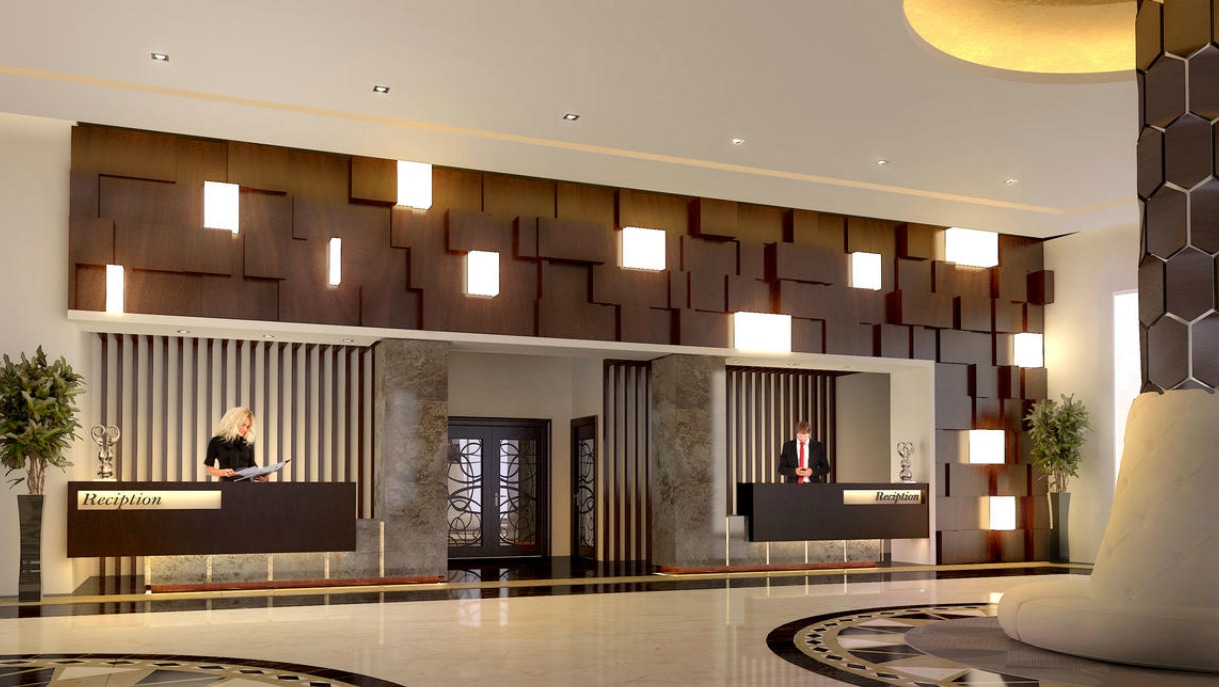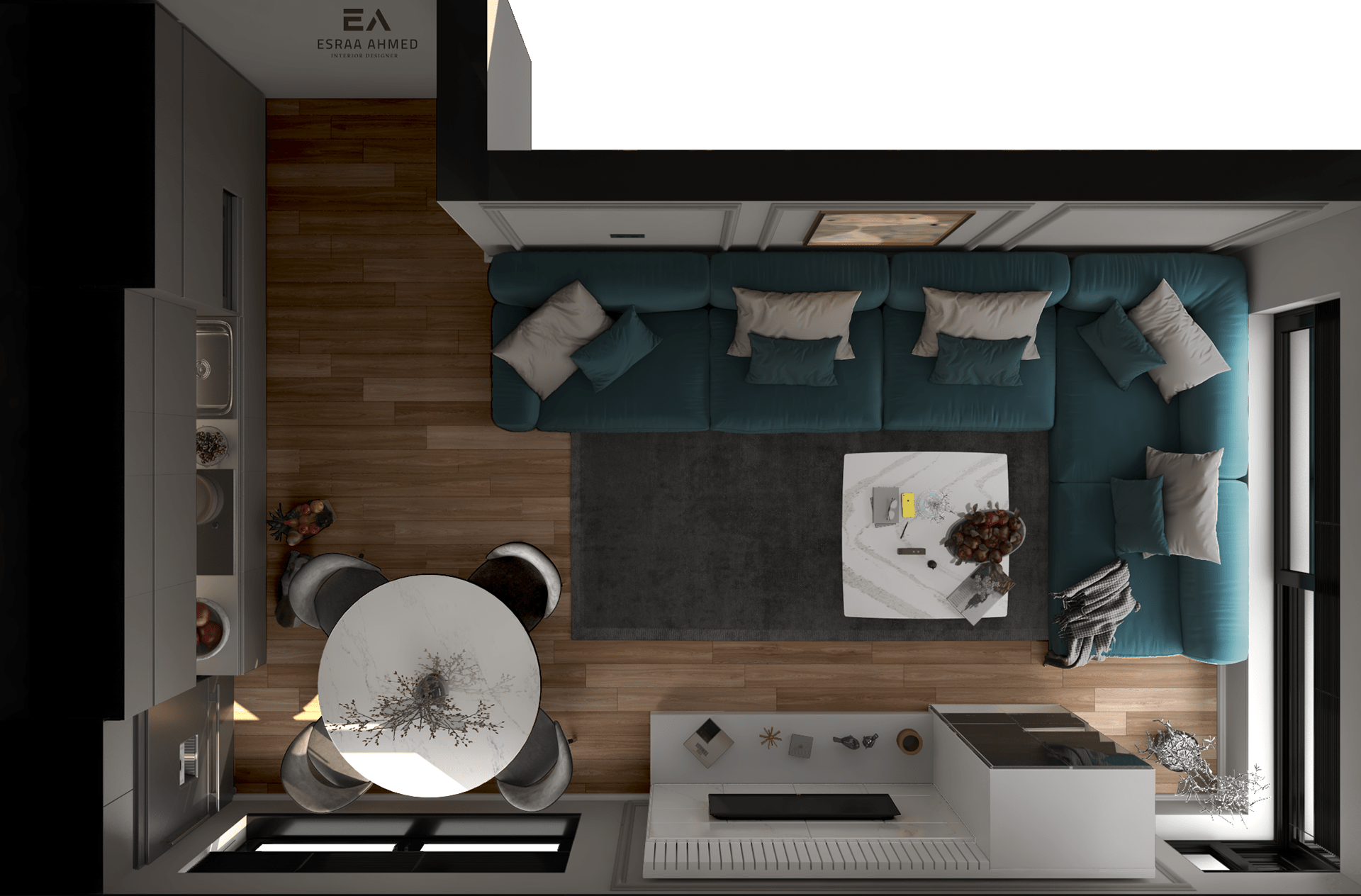Revolutionizing Reception Design: Creating A Welcoming First Impression
When you walk into a space, the reception area sets the tone for your entire experience. Reception design isn't just about aesthetics; it's about creating an environment that resonates with visitors from the moment they step inside. This crucial area serves as the gateway to your business, setting expectations and leaving lasting impressions. In today's competitive world, getting reception design right is more important than ever.
Think about it – how many times have you judged a place based on its entrance? It's like the handshake of architecture. A well-designed reception can instantly communicate professionalism, warmth, or even innovation. But it's not just about slapping some chairs and a desk together. There's a whole science behind crafting a reception area that works.
Whether you're designing for a corporate office, a trendy startup, or even a medical facility, the principles of effective reception design remain the same. It's all about balancing functionality with aesthetics, creating a space that serves its purpose while also making a statement. Let's dive into how you can transform your reception area into a powerful first impression machine.
Read also:Life Partner P Allen Smiths Wife Debbie A Wikipedia Journey You Wont Forget
The Psychology Behind Reception Design
Ever wondered why certain spaces make you feel calm while others make you anxious? That's the magic of design psychology at play. Reception design goes beyond just looks; it taps into the subconscious mind of visitors. Studies show that people form impressions within seconds, and the reception area is often the first place they experience.
Creating Emotional Connections Through Design
It's not just about what you see, but how it makes you feel. Warm lighting, comfortable seating, and thoughtful color schemes can create a welcoming atmosphere that puts visitors at ease. The right reception design can transform a potentially stressful visit into a pleasant experience.
Think about color psychology – blues and greens promote calmness, while warm tones create a sense of comfort. Even the type of furniture you choose can influence how people perceive your space. Sofas versus chairs, soft fabrics versus hard surfaces – every decision matters.
Key Elements of Effective Reception Design
So what makes a reception area truly effective? It's all about combining the right elements to create a cohesive experience. Let's break it down into manageable chunks.
Functional Layout
- Clear traffic flow
- Accessible reception desk
- Comfortable waiting area
When designing your reception space, consider how people will move through the area. The reception desk should be easily visible from the entrance, with clear pathways to other parts of the building. Make sure there's enough space for people to move around comfortably without feeling cramped.
Visual Appeal
- Consistent branding
- Strategic lighting
- Thoughtful decor
Your reception area should reflect your brand's identity. This could mean incorporating your company colors, using specific typography, or displaying branded materials. Lighting plays a crucial role too – too bright and it can feel harsh, too dim and it might seem unwelcoming. Find the sweet spot that works for your space.
Read also:Chadwick Aaron Boseman The Legacy That Transcends Time
Trends in Modern Reception Design
Just like fashion, reception design has its own trends that evolve over time. Right now, we're seeing a shift towards more personalized and experiential spaces. Here are some of the hottest trends in reception design:
Bold Color Palettes
Gone are the days of boring beige walls. Modern reception areas are embracing vibrant colors and unique patterns. Think accent walls, geometric shapes, and unexpected color combinations. This trend helps create memorable spaces that stand out from the crowd.
Sustainable Materials
With increasing awareness about environmental impact, designers are opting for sustainable materials. This could mean using reclaimed wood, recycled metals, or eco-friendly fabrics. Not only does it show commitment to sustainability, but it also adds character to the space.
Case Studies: Successful Reception Designs
Let's take a look at some real-world examples of reception areas that got it right. These spaces demonstrate how thoughtful design can enhance the visitor experience.
Corporate Offices
One Fortune 500 company transformed its reception area by incorporating a living wall and comfortable lounge seating. The result? A 20% increase in positive feedback from visitors. Another company used interactive digital displays to showcase their brand story, creating an engaging experience for guests.
Medical Facilities
Hospitals and clinics are rethinking their reception areas to reduce patient anxiety. Soft lighting, calming colors, and private check-in stations help create a more soothing environment. Some facilities even incorporate water features or art installations to promote relaxation.
Technology Integration in Reception Design
Let's talk tech – how can you incorporate technology into your reception area without making it feel cold or impersonal? The key is finding the right balance.
Self-Service Kiosks
These can streamline the check-in process while reducing wait times. Just make sure they're user-friendly and don't replace human interaction entirely. Think of them as an assistant, not a replacement.
Interactive Displays
Use digital screens to showcase company information, display art, or even provide directions. They can add a modern touch to your space while serving a functional purpose.
Maximizing Space in Small Reception Areas
Not everyone has the luxury of a large reception area, but that doesn't mean you can't create an impactful design. Here are some tips for making the most of limited space:
Multipurpose Furniture
Consider pieces that serve more than one function, like storage ottomans or foldable tables. These can help maximize space while still providing comfort and functionality.
Vertical Design
Utilize wall space by installing floating shelves or vertical gardens. This can add visual interest while keeping the floor space clear.
Color Theory in Reception Design
Colors play a crucial role in how people perceive your reception area. Here's a quick breakdown of what different colors can communicate:
Blue
Associated with trust and stability. Great for corporate environments where professionalism is key.
Green
Symbolizes growth and renewal. Perfect for creative spaces or nature-inspired designs.
Orange
Exudes energy and enthusiasm. Use sparingly to add pops of color without overwhelming the space.
Lighting Techniques for Reception Areas
Lighting can make or break your reception design. Here are some techniques to consider:
Layered Lighting
Combine different types of lighting – ambient, task, and accent – to create depth and interest. This approach ensures there's enough light for functionality while maintaining a pleasant atmosphere.
Smart Lighting
Consider using smart lighting systems that can adjust brightness and color temperature throughout the day. This not only enhances the user experience but also improves energy efficiency.
Final Thoughts: Crafting Your Perfect Reception Design
As we've explored, reception design is a complex yet rewarding process. By understanding the psychology behind design, incorporating key elements, and staying current with trends, you can create a reception area that truly wows visitors. Remember, it's not just about making a space look good – it's about creating an experience that resonates with people.
Now it's your turn! Take what you've learned and start transforming your reception area into a space that reflects your brand and makes a lasting impression. Share your thoughts in the comments below or check out our other articles for more design inspiration. Who knows, your next great idea might just be waiting for you!
Table of Contents:
- The Psychology Behind Reception Design
- Key Elements of Effective Reception Design
- Trends in Modern Reception Design
- Case Studies: Successful Reception Designs
- Technology Integration in Reception Design
- Maximizing Space in Small Reception Areas
- Color Theory in Reception Design
- Lighting Techniques for Reception Areas
Article Recommendations


